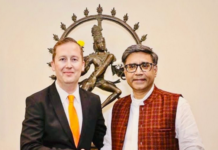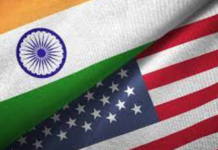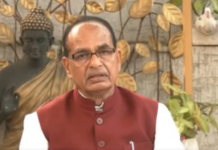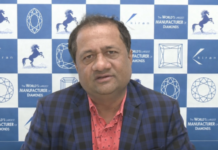WASHINGTON — Lawmakers from both major U.S. political parties have joined forces to defend the country’s relationship with India, weeks after the Trump administration introduced several measures viewed as harmful to Indian interests.
Over the past 10 days, at least six bipartisan letters and resolutions have been drafted to support the Indian American community, reaffirm U.S.–India cooperation, and demand greater accountability for recent policy decisions targeting New Delhi.
Last week, a group of House members warned that a planned event at Rutgers University could “fuel further prejudice” against Hindus, noting recent incidents of violence against Hindu temples. The letter was co-signed by Democrats Sanford Bishop of Georgia, Shri Thanedar of Illinois, and Suhas Subramanyam of Virginia, along with Republican Rich McCormick of Georgia.
Two days earlier, another bipartisan coalition of six House members sent a letter to President Donald Trump and Commerce Secretary Howard Lutnick voicing concern over the administration’s new H-1B visa proclamation. “We are concerned that the recent proclamation related to H-1B visa petitions will create significant challenges for U.S. employers and overall weaken our competitiveness,” the lawmakers wrote. That group included Democrat Suhas Subramanyam and Republican Representatives Jay Obernolte and Don Bacon, among others.
On October 17, four lawmakers urged President Trump to attend the upcoming Quad Leaders’ Summit in India and related regional meetings. The same day, another bipartisan resolution was introduced in the House of Representatives recognizing the contributions of the Indian American diaspora and condemning acts of racism against Indian Americans. The resolution called the U.S.–India partnership “one of the most important democratic relationships in the world.”
This wave of bipartisan engagement marked a sharp contrast to October 8, when 19 Democratic members of Congress wrote to President Trump urging him to “reset and repair” what they called a “critical partnership” with India — without Republican backing.
Both Democratic and Republican leaders have faced criticism for remaining largely silent as senior administration officials, including Trade Advisor Peter Navarro and Commerce Secretary Howard Lutnick, repeatedly criticized India’s purchase of Russian oil and its trade policies. In August, the Trump administration imposed 50 percent tariffs on Indian goods, including a 25 percent levy on Russian oil imports. A month later, the president signed a proclamation adding a $100,000 application fee for H-1B visas — a program in which Indian nationals account for more than 70 percent of approved petitions.
While a few Democrats publicly opposed these moves, many Republican lawmakers initially refrained from comment. Representative Ami Bera, a leading Democrat on U.S.–India relations, told IANS earlier this month that some GOP members “are certainly afraid to take on President Trump directly.”
In recent weeks, the tone has shifted. Negotiations have resumed on a limited trade agreement, and President Trump hosted a Diwali celebration at the White House, calling Indian Prime Minister Narendra Modi “a great person” who “loves the people of India.”
Bera urged colleagues on both sides of the aisle to focus on the long-term partnership. “Instead of making this about President Trump, let’s make it about the U.S.–India relationship,” he said. “It shouldn’t be a Democratic thing or a Republican thing. It should be an American thing.” (Source: IANS)














